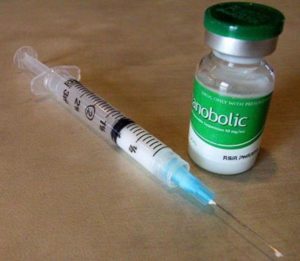 The BHA announced on Thursday that its new “zero tolerance” policy on the use of anabolic steroids in horse racing is on course for implementation in March, two months later than originally planned.
The BHA announced on Thursday that its new “zero tolerance” policy on the use of anabolic steroids in horse racing is on course for implementation in March, two months later than originally planned.
The BHA’s new scheme will make it compulsory for British-bred thoroughbred foals to be registered with the authority within 12 months of birth, and within six months of birth from 2017, after which they will be liable for random testing for anabolic steroids at any time.
The mandatory “stand down” period from training for any horse testing positive for steroids, or which the authority is satisfied has been treated with steroids, will increase from six months to 14 months.
The BHA said that the delayed implementation of the new regime had been caused by a need for “clarification and consensus” with bodies including the Racehorse Owners Association, the National Trainers’ Federation and the Thoroughbred Breeders’ Association.
The precise definition of a “responsible person” – the individual with the responsibility for ensuring that a horse is not administered with an anabolic steroid – was among the issues which had not been resolved in time for the planned launch on 1 January.
“The implementation of an entirely new and far-reaching set of anti-doping rules has been a complex process,” Jamie Stier, the BHA’s director of raceday operations and regulation, said on Thursday.
“We are naturally pleased to have reached consensus with all parties regarding the outstanding issues and while it was disappointing not to implement the policy on 1 January, it was certainly the right decision not to rush the introduction of the rules until consensus was reached.”
The guiding principle of the BHA’s new regime is that “a horse must not be administered an anabolic steroid at any point in its life”, while the introduction of random testing of foals and yearlings will extend its regulatory powers to Britain’s stud farms and pre-training facilities for the first time.
Horses bred elsewhere and imported into Britain to race must be registered with Weatherbys, the sports “civil service”, within three months of arrival, and in addition supply a sample that shows no evidence of steroid administration. The regulations for foreign-bred horses will not apply to those arriving from Ireland, France or Germany, however, provided they have spent at least 12 months under their “equivalent” drug-testing regulations.
The BHA’s intention to introduce a “zero tolerance” policy on anabolic steroids was announced in June 2014, 16 months after the Mahmood al-Zarooni doping scandal at Godolphin’s Moulton Paddocks stable in Newmarket. Zarooni, a Classic-winning trainer with nearly 200 horses in a yard ultimately owned by Sheikh Mohammed of Dubai, the sport’s most powerful owner, was found to have doped at least 22 of his horses with anabolic steroids, including Encke, the winner of the St Leger at Doncaster in 2012.
Rupert Arnold, the chief executive of the National Trainers’ Federation, stressed the organisation’s support for the new regime on Thursday while also underlining the NTF’s concerns about the extra administrative duties placed on its members. “We are completely in line with the objectives of the new rules,” Arnold said.
“The next step is to make sure everyone involved understands the practical requirements. Regrettably, they will impose an additional bureaucratic burden on trainers when horses move away from their care and control. However, constructive discussions with the BHA and ROA have enabled us to minimise that impact.”
www.theguardian.com








